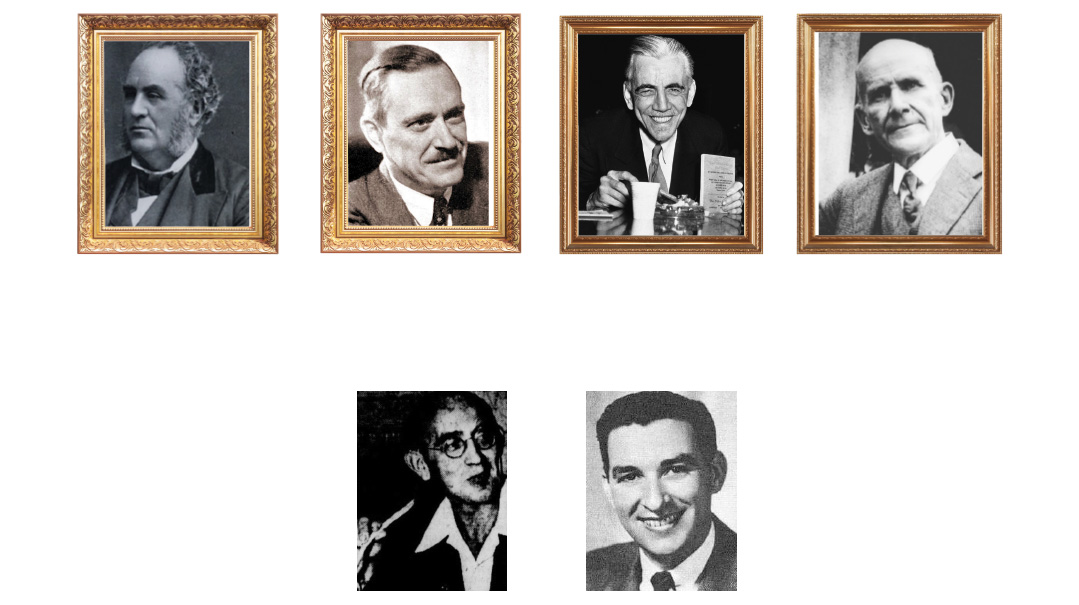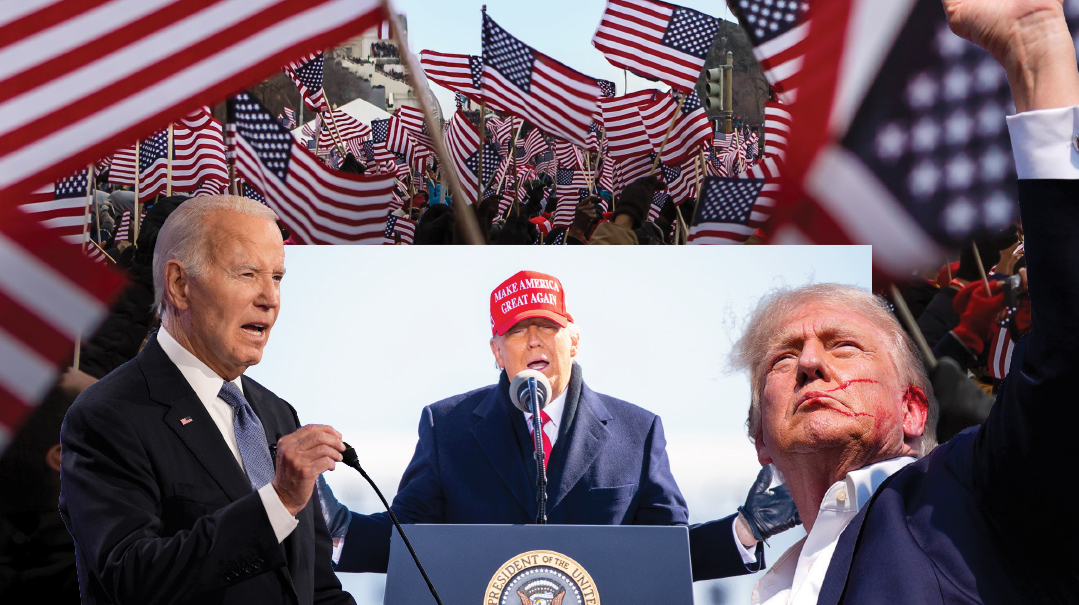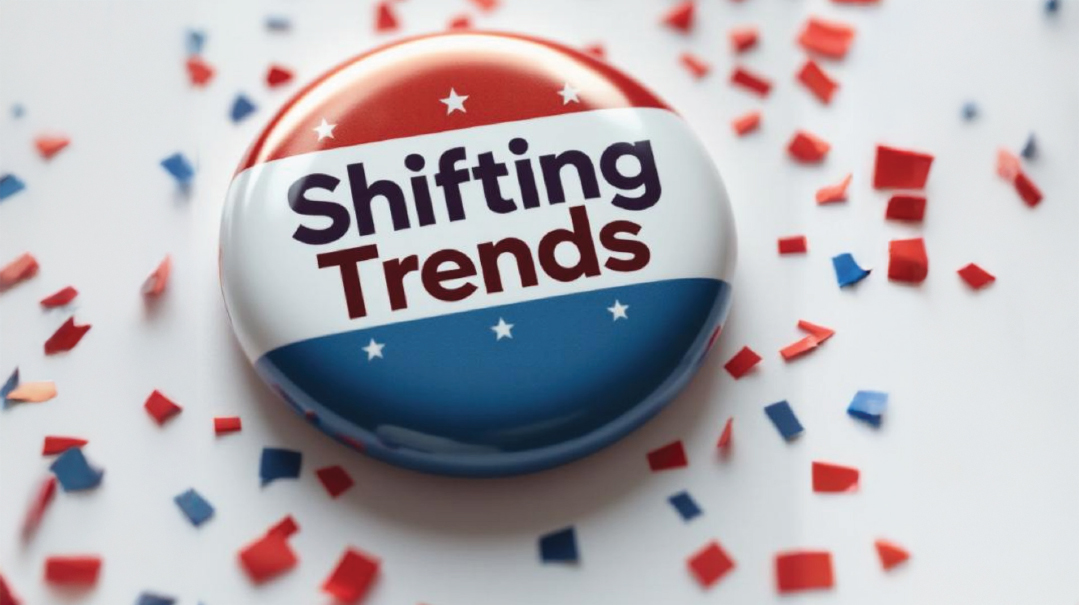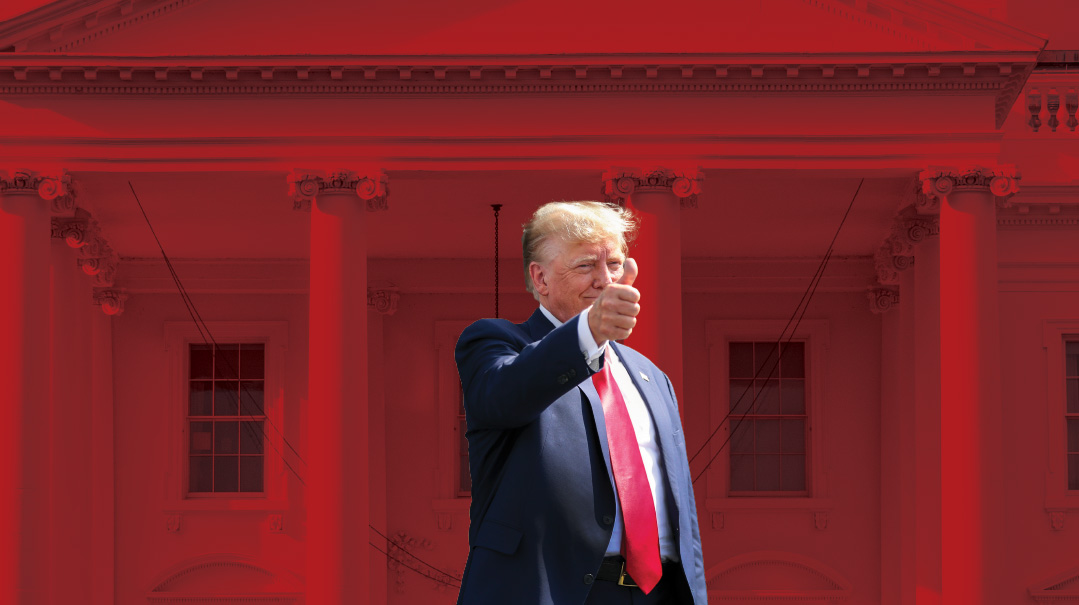Trump Cards: Jewish Landscaping
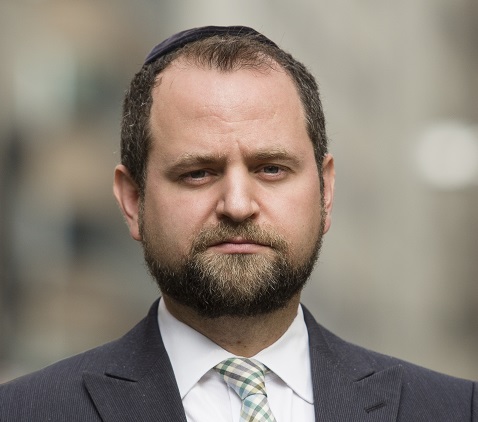
The story of the Jewish vote in 2024 has attracted attention from the highest levels of the Republican Party
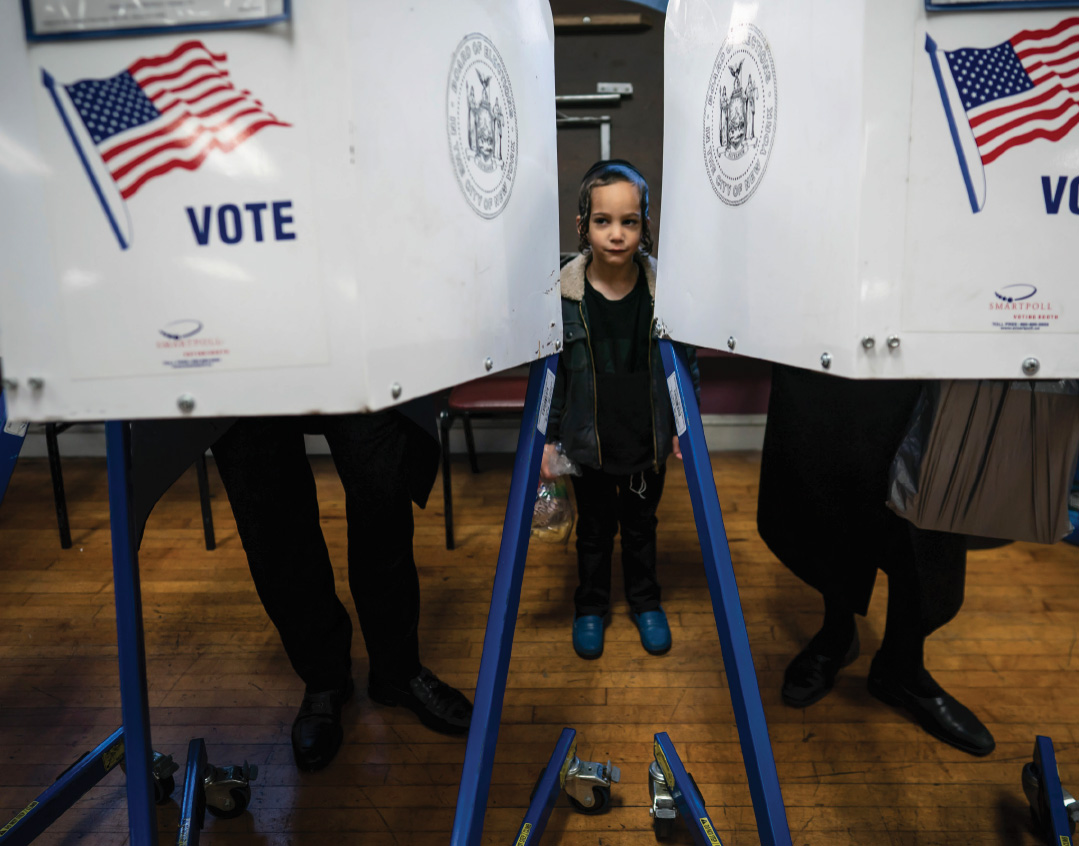
Photo: AP Images
For as long as I’ve been involved in politics, two narratives have held sway:
- Jewish voters are overwhelmingly and reliably Democratic; and
- Jewish voter turnout is an outlier and not a constant.
November 5 upended both political storylines. The story of the Jewish vote in 2024 has attracted attention from the highest levels of the Republican Party, and moving forward, Donald Trump will include it as a factor in his political calculus. Here’s what it means for the future of American politics.
Are Jewish voters Democratic?
F
or decades, exit polls have consistently shown the Jewish vote for president at about 70%-plus for the Democratic candidate. This year, we did a robust nonpartisan survey on and after Election Day with the Honan Strategy Group. We specifically polled areas that were competitive in Pennsylvania and the swing US House races in New York state. What we found was eye-opening.
The Jewish vote was very evenly split between the two parties, and Kamala Harris did not get over 50% of the vote in either state, despite allegedly winning this voting segment overwhelmingly on a national basis.
How can this be explained?
Anti-Semitism.
In a post–October 7 world, we were curious about how the current wave of anti-Semitism is affecting the voting patterns of Jewish voters. The survey specifically asked respondents whether the rise of anti-Semitism had a significant impact on their vote, and over 40% said yes.
This finding was accentuated when we asked respondents if they would have voted differently if Kamala Harris had selected Pennsylvania governor Josh Shapiro for her running mate rather than Minnesota governor Tim Walz. Recall that Harris’s selection of a vice presidential candidate ignited a tumult among segments of the left, who waged an anti-Semitic campaign against the popular Shapiro.
It appears that Harris may have missed an opportunity to win additional Jewish voters, especially in Pennsylvania. According to our survey, had Harris selected Shapiro, she would have won the Pennsylvania Jewish vote by 15 points and the swing New York congressional districts by 12 points. In a post–October 7 world, anti-Semitism is changing formerly predictable voting patterns.
Was Jewish turnout a one-off?
IN
the Westchester County Democratic primary that pitted Jamaal Bowman against George Latimer, the Jewish community turned out at historic levels. One shul turned out at 90%. Over the last year, Jewish voter turnout has not slacked off, remaining at those historically high levels. In a Pennsylvania presidential primary scheduled on Pesach, the Jewish community turned in mail-in-ballots at a rate above the average turnout. In New Jersey elections in November 2023, Jewish voters in Lakewood and Bergen County showed up at rates 10 or 20 points higher than the average voter turnout for an off-year election. Political pundits wondered if this level of voting enthusiasm could possibly hold up. The answer is overwhelmingly yes.
In the Five Towns, in one of the most-watched swing congressional districts, likely Jewish voters turned out at 75%, compared to 67% for the district as a whole. In Jackson, New Jersey, the community achieved an astounding 90% turnout. And the returns weren’t just impressive on Election Day. In Pennsylvania, we identified Jewish voters who voted by mail at a rate 12% higher than the rest of the population. In Nevada, 77% of Jewish voters who were reached by the local turnout efforts voted early, compared to 54% of the general population.
Shuls drove turnout. Schools drove turnout. Community members drove turnout.
High voter turnout in our community, something we once saw sporadically, is now here to stay.
Now, one may ask: How can our community possibly stay motivated in upcoming elections? The polling we did indicates that our community’s motivation to stay engaged is strong.
Our survey showed that a whopping 8 in 10 say it is very important for them to remain politically engaged in local municipal races in 2025 and 2026. Anti-Semitism may be a motivating factor for Jewish voters to turn out, but it has triggered a sense of overall civic responsibility that is enduring.
What does it all mean?
W
hen a constituency’s vote isn’t predictable, and it turns out at rates higher than those of the general population, it can shake the very foundation of politics.
It means that Jewish voter turnout can impact the outcome of races. Don’t believe me?
Just ask the Los Angeles Jewish community, which was instrumental in electing a new district attorney who they felt would be better at combatting crime and anti-Semitism.
Just ask New Jersey, where the community won races in Jackson, Teaneck, Englewood, and Ocean. Or talk to your friends in Passaic, who turned out to vote and brought a local congressional race to within 5 points — absolutely shocking. It’s changing not just state politics but also national politics. Analysts wondered why a race forecast to be a landslide instead all of a sudden became very unpredictable.
Just ask New York, where the fight for who controlled the House came down to places like Monsey, the Catskills, and the Five Towns.
The future of politics
P
olitics is never going back after this past week. Our community’s vote simply can’t be ignored, and politicians now know it.
Next year, there are elections for mayor of New York City and governor of New Jersey. What happens if our community turns out in the same numbers, or higher, and helps decide who sits in these major seats?
The year after that, control of Congress will once again come down to swing House seats in New York state and beyond. What happens in 2026 if our community builds on what they did in 2024 and 2025, and shatters even more voting records?
Finally, what happens in 2028 when presidential candidates see that Jews in places like Nevada, Pennsylvania, Michigan, Arizona, and other swing states are more motivated than ever to vote?
There are numerous possibilities, some that are shocking even for a longtime politico like me. I stumbled upon an article while drinking my morning coffee titled “Is New Jersey a New Swing State?” I almost spat out my coffee. But when I looked at the numbers, it was clear. This year, the race in New Jersey was closer than the one in Arizona when it came to determining who could win the presidency.
The community should take a victory lap. We have upended traditional narratives and set a new political reality that will resonate for years to come.
(Originally featured in Mishpacha, Issue 1036)
Oops! We could not locate your form.

